Benefits of Social Skills Groups for Autistic Children
Unlocking Potential Through Group-Based Social Skills Therapy

Why Social Skills Matter for Autistic Children
Social skills are vital for meaningful interaction and emotional well-being, yet children with autism spectrum disorder (ASD) often face unique challenges in this area. Social skills groups, integrated within evidence-based treatments like Applied Behavior Analysis (ABA) therapy, offer structured environments where autistic children can learn, practice, and enhance their social abilities. This article explores the benefits of social skills groups and how these interventions foster growth, confidence, and independence in children with autism.
Understanding ABA Therapy and Its Role in Autism Treatment
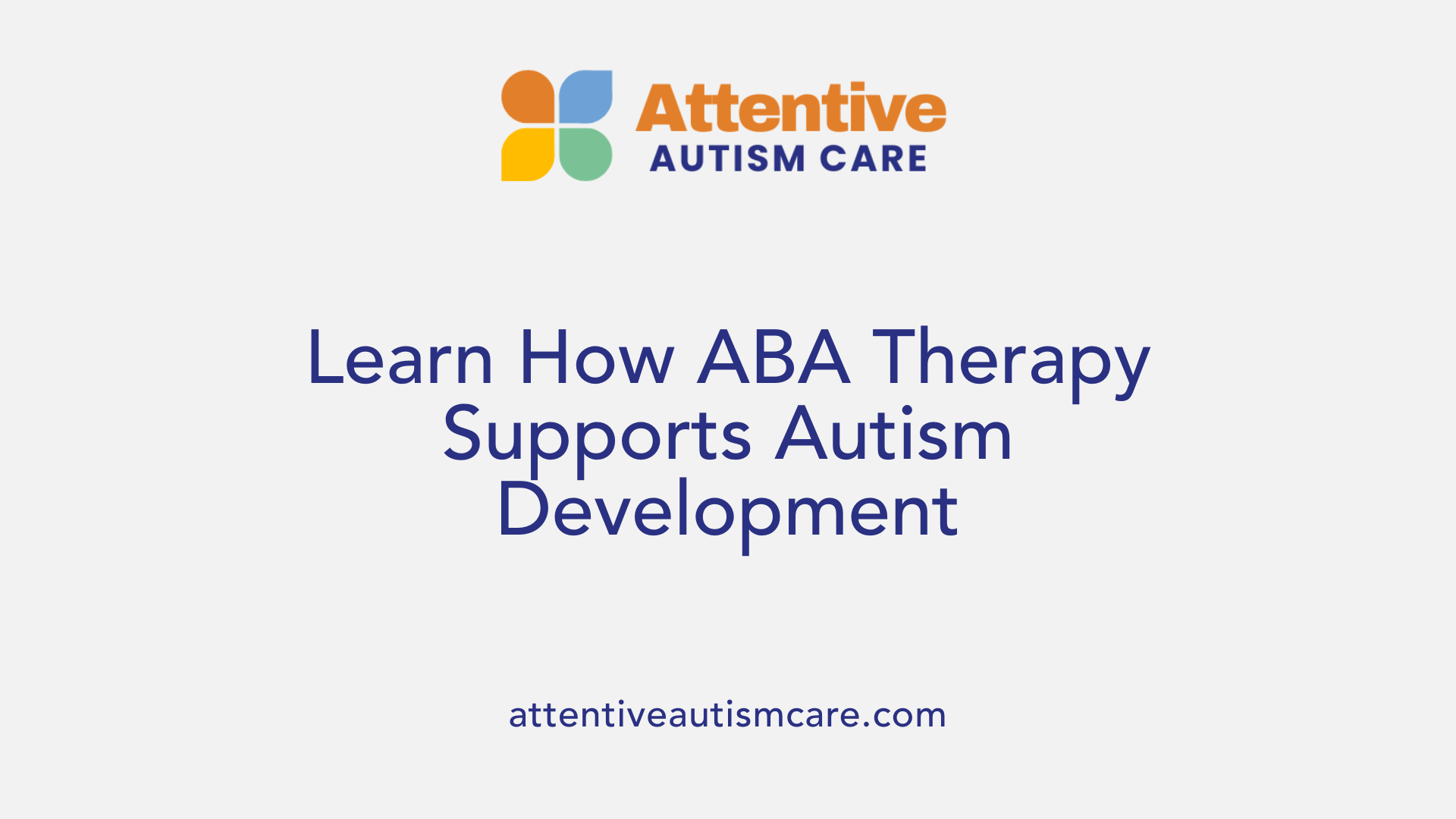
What is applied behavior analysis (ABA) therapy and how is it used in autism treatment?
Applied Behavior Analysis (ABA) therapy is a science-backed approach that helps children with autism spectrum disorder (ASD) by focusing on how their behavior is influenced by the environment. It uses methods grounded in the study of learning and behavior to encourage useful skills and reduce behaviors that may interfere with development.
Principles of ABA: How does behavior and learning fit?
ABA operates by understanding the "A-B-Cs" — Antecedent, Behavior, and Consequence. This framework helps identify what triggers a behavior and what follows it, enabling tailored strategies to encourage positive actions. Positive reinforcement is a cornerstone, where desirable behaviors are rewarded to increase their frequency.
Individualized, functional, and naturalistic approaches
ABA therapy is highly personalized, with sessions designed to match each child's unique strengths, needs, and interests. It focuses on everyday skills like communication, social interaction, personal care, and coping with emotions. Interventions often take place in natural settings such as home, school, or community to promote real-world learning.
Role of qualified professionals
Qualified Board Certified Behavior Analysts (BCBAs) design and supervise ABA programs. They ensure interventions are evidence-based, monitor progress through ongoing data, and adjust techniques to meet the evolving needs of the child.
How is ABA applied in autism treatment?
ABA aims to improve a broad range of skills, including language, socialization, daily living, and emotional regulation. It is an intensive, long-term treatment supported by research demonstrating improvements in intellectual functioning and social skills. The therapy’s adaptability allows it to be implemented through individual or group sessions, fostering communication and social understanding in a supportive environment.
| Aspect | Description | Additional Detail |
|---|---|---|
| Definition | Science-based behavior therapy for ASD | Uses learning science to shape useful behaviors |
| Behavior Principles | Focus on Antecedent-Behavior-Consequence framework | Applies positive reinforcement to encourage behaviors |
| Personalization | Tailored sessions based on individual needs | Emphasizes functional, naturalistic learning |
| Professional Oversight | Delivered by qualified BCBAs | Regular assessment and adjustment of programs |
| Autism Treatment Application | Targets communication, social skills, daily living, emotion | Supports long-term developmental outcomes |
Who Provides ABA and Social Skills Therapy for Autism?
Who typically provides ABA therapy for individuals with autism?
ABA therapy is delivered by trained professionals with specialized expertise in behavioral science. Key providers include Board-Certified Behavior Analysts (BCBAs) and Registered Behavior Technicians (RBTs). BCBAs design, oversee, and regularly assess individualized treatment plans, while RBTs often implement daily interventions under their supervision.
What roles do BCBAs and RBTs play?
- BCBAs: Develop customized, evidence-based programs tailored to the child's unique needs, incorporating play-based and goal-oriented strategies. They monitor progress and adjust therapy accordingly.
- RBTs: Provide hands-on therapy sessions, applying behavior techniques such as positive reinforcement and natural environment training.
Where does therapy take place?
ABA services are flexible and occur in various settings:
- Clinics or specialized centers for structured therapy sessions
- The child's home, enhancing comfort and real-world skill application
- Community environments to practice social and daily living skills in natural contexts
Why is individualized treatment important?
Each child with autism presents distinct strengths and challenges. Personalized plans focus on developing communication, social skills, routines, and reducing problem behaviors. Play-based and goal-oriented methods engage children effectively, making learning enjoyable and relevant.
How are families involved?
Family participation is a vital part of the therapy process. Providers offer caregiver training to support skill generalization at home and foster consistency. Collaborative efforts between therapists and families enhance gains and promote a supportive environment for the child's growth.
Together, qualified BCBAs and trained therapists in diverse settings ensure that ABA and social skills therapy are delivered effectively, fostering meaningful progress in children with autism.
The Structure and Approach of ABA Therapy Programs in Social Skills Development
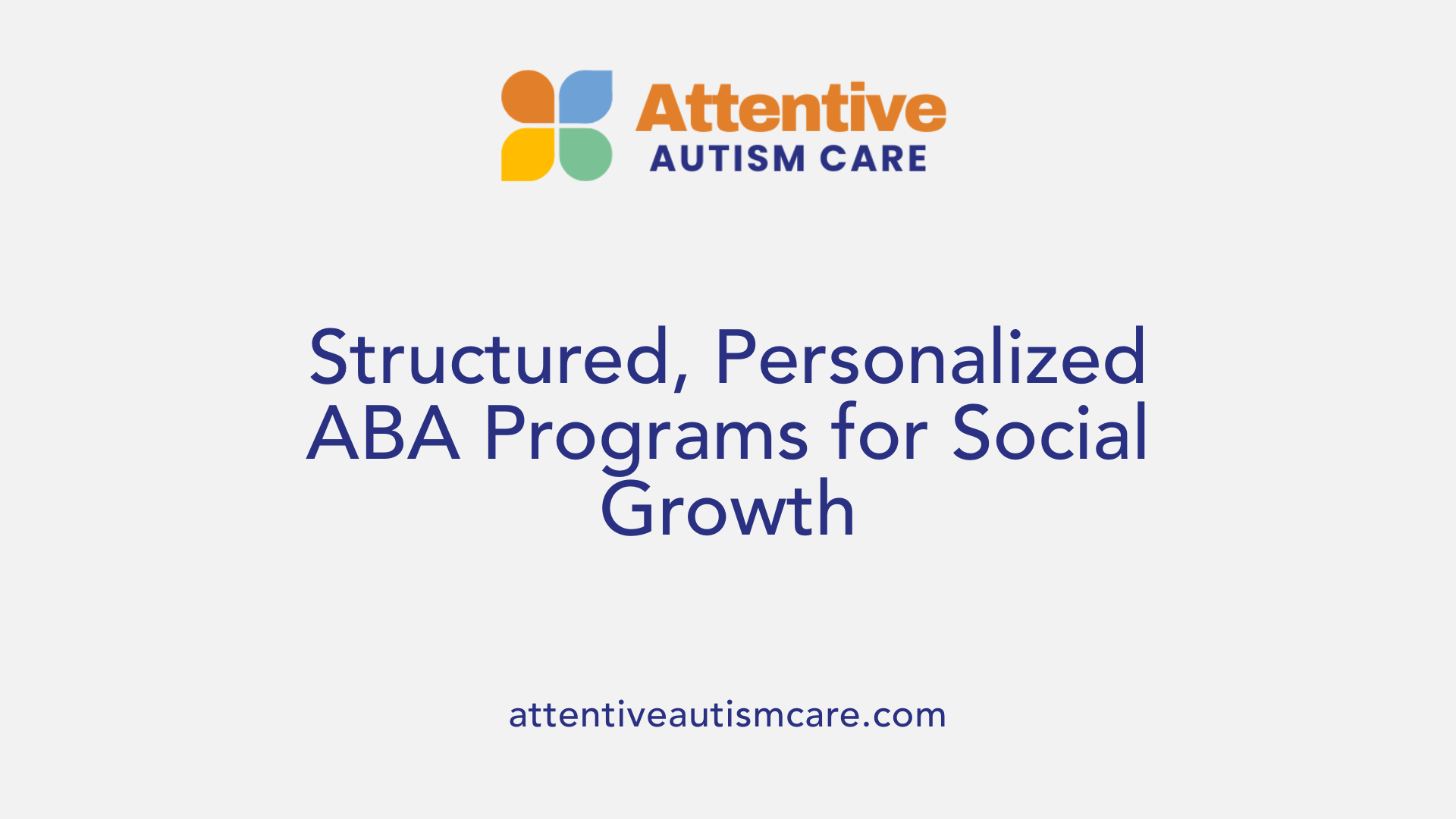
How is an ABA therapy program typically structured?
ABA therapy programs begin with an initial assessment by a Board Certified Behavior Analyst (BCBA) to evaluate each child's unique strengths and needs. This detailed evaluation forms the basis for an individualized treatment plan that outlines clear, measurable goals focused on improving communication, social interaction, daily living skills, and academic areas.
The sessions use established techniques such as Discrete Trial Training (DTT), Natural Environment Teaching (NET), and Pivotal Response Training (PRT). These methods provide structured learning opportunities and naturally occurring teaching moments while emphasizing real-world application.
Use of positive reinforcement and behavior techniques
A central element of ABA is the use of positive reinforcement. Desirable behaviors, such as effective communication or social engagement, are immediately rewarded with praise, tokens, or other motivators, strengthening the likelihood of their recurrence. Understanding behavioral patterns involves analyzing the Antecedent (what happens before a behavior), the Behavior itself, and the Consequence (the response to the behavior), enabling tailored interventions.
Data collection and progress monitoring
Throughout the therapy, therapists meticulously collect data on the child's responses and progress. This ongoing monitoring allows the BCBA to adjust the program as needed, ensuring goals remain relevant and effective. Regular reporting and collaboration with parents promote generalized skill application across environments.
Adaptability to child's interests and learning style
ABA therapy customizes activities, blending structured and naturalistic strategies to align with the child's interests and preferred learning styles. This personalization boosts engagement, motivation, and overall success, making sessions enjoyable while fostering essential social skills development.
Techniques: Discrete Trial Training, Natural Environment Teaching, Pivotal Response Training
- Discrete Trial Training (DTT): Breaks skills into small, manageable steps taught through repetition.
- Natural Environment Teaching (NET): Applies teaching in everyday settings to encourage spontaneous skills.
- Pivotal Response Training (PRT): Focuses on pivotal areas like motivation and self-management to improve multiple behaviors simultaneously.
This structured yet flexible approach ensures ABA therapy effectively supports social skills development, helping children with autism thrive in varied social settings.
Social Skills Groups: A Key Component Within ABA Therapy
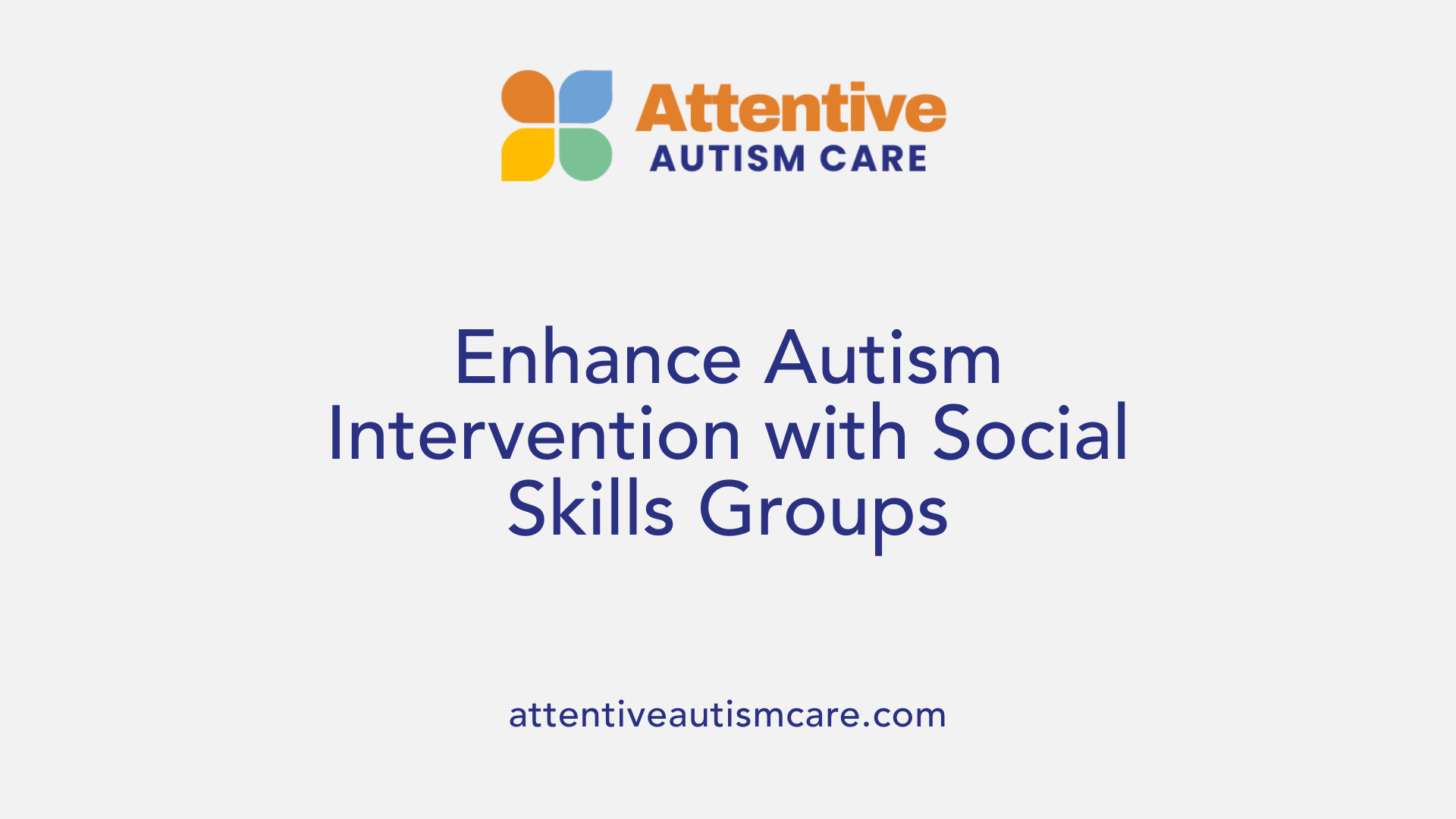
How Are Social Skills Groups Integrated Within ABA Therapy?
Social skills training is often combined with Applied Behavior Analysis (ABA) therapy to enhance the social development of children with autism. These programs are thoughtfully designed to complement ABA's behavior-focused approach, making therapy more holistic.
What Is the Environment Like for Practicing Social Skills in These Groups?
Social skills groups provide a structured, supportive setting where children can observe, model, and practice social interactions. This structured environment encourages guided learning and real-time feedback.
What Are the Benefits of Observation, Modeling, and Interaction in These Groups?
By participating in group sessions, children learn through observation and modeling of appropriate social behavior. Interaction with peers helps improve communication and relationship-building abilities, which elevate self-confidence and self-esteem.
Which Social Skills Are Targeted in These Group Sessions?
Key skills include nonverbal communication such as eye contact and facial expressions, conversational skills to maintain dialogues, perspective-taking to understand others' viewpoints, and conflict resolution techniques to handle disagreements effectively.
How Do Social Skills Groups Support Friendship Building and Emotional Regulation?
These groups teach children how to express their thoughts and feelings clearly, enabling meaningful social connections. They also emphasize emotional regulation by helping children recognize and manage their emotions, fostering healthier friendships and interactions.
Benefits of Social Skills Groups for Autistic Children
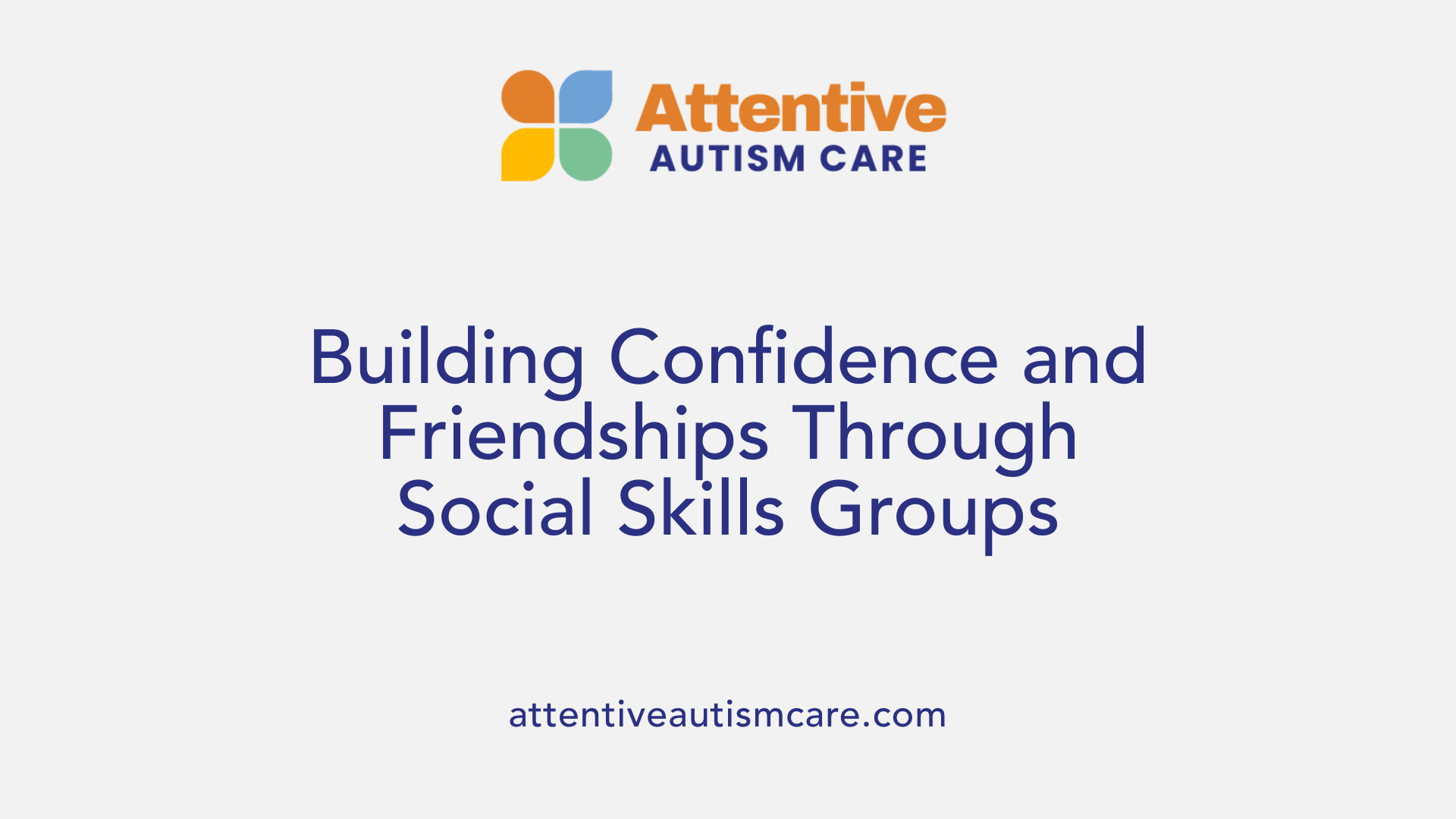
Improvement in communication and relationship-building
Social skills groups within ABA therapy provide structured opportunities for children with autism to develop both verbal and non-verbal communication skills. Through observation and modeling, children learn essential social cues like eye contact and conversational skills, enabling them to build meaningful friendships and navigate social situations more effectively.
Increased self-confidence and self-esteem
Participating in group settings helps children practice social interactions in a safe environment, which boosts their self-confidence and self-esteem. As children experience success in connecting with peers, they gain motivation to engage more fully in social activities.
Helping children express thoughts, feelings, and needs
Social groups teach children how to articulate their emotions and desires clearly, fostering meaningful social connections. Skills such as perspective-taking and emotional regulation are emphasized, enabling children to communicate more effectively across various settings.
Promoting emotional well-being and coping strategies
Social skills therapy also focuses on identifying emotions and teaching healthy coping strategies. This support helps children manage their feelings constructively, which is vital for emotional well-being and reduces behavioral challenges.
Preparation for real-life social scenarios
By enhancing social cue recognition and conflict resolution abilities, social skills groups prepare children with autism to face real-world social challenges confidently. These skills contribute to greater independence and smoother integration into everyday environments.
What are the benefits of ABA therapy for individuals with autism?
ABA therapy offers numerous benefits, including improved communication, social interactions, and academic performance. It utilizes personalized, evidence-based methods like positive reinforcement to encourage desirable behaviors. Through understanding environmental factors influencing behavior, ABA teaches essential life skills such as independence and emotional regulation. Early and intensive intervention leads to significant developmental gains, helping children participate more fully in mainstream settings. Overall, ABA promotes skill development, independence, and enhanced quality of life for individuals with autism.
Ensuring Effective Social Skills Development: Assessment and Family Involvement
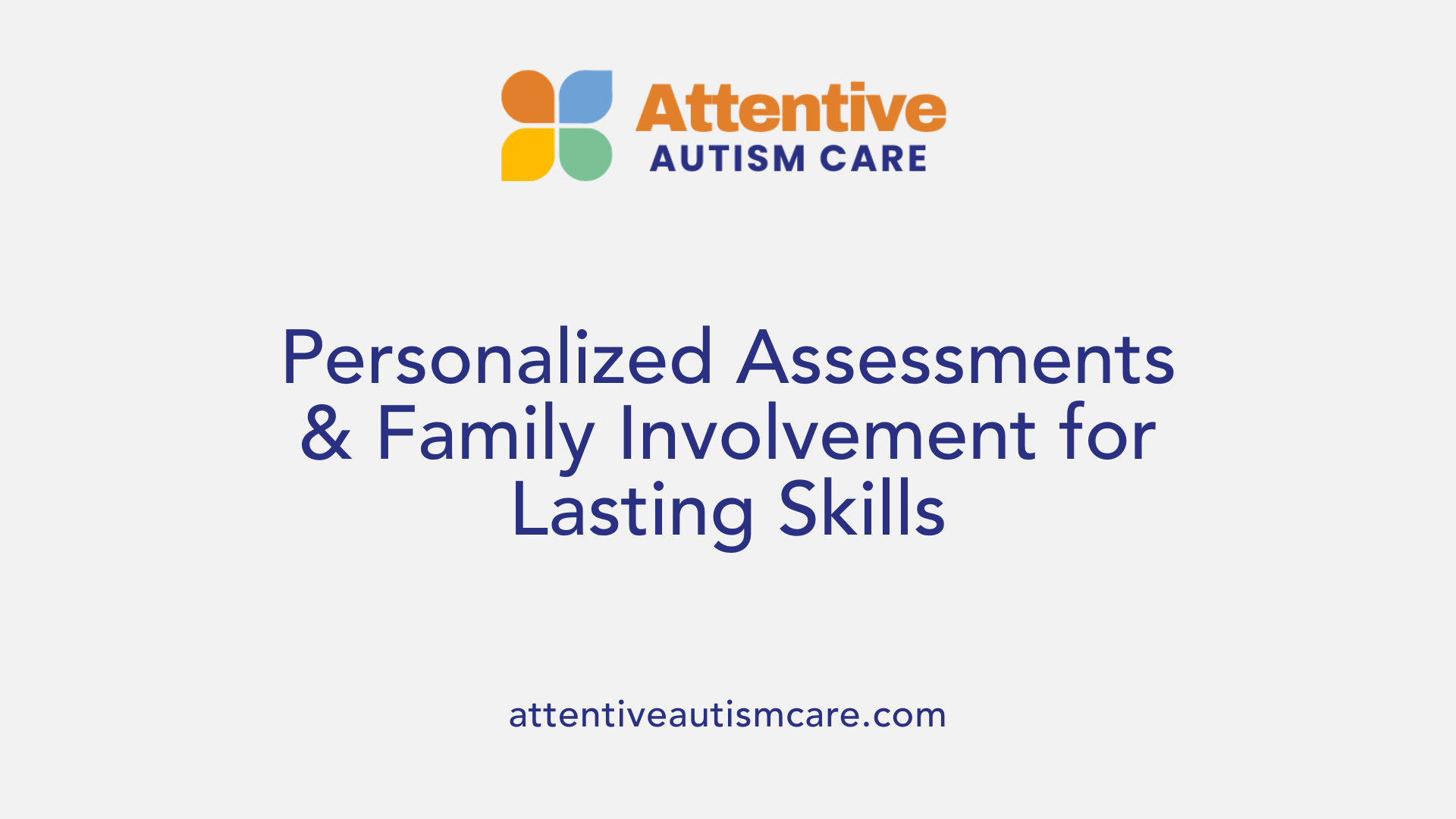
Individualized Social Skills Assessments
Before starting therapy, it's essential to conduct individualized social skills assessments. This process identifies each child's unique strengths, challenges, and requirements, enabling therapists to design tailored interventions. For example, Strive ABA Consultants emphasize comprehensive assessments to develop effective social skills training plans.
Parent Involvement to Generalize Skills
Family participation plays a crucial role in reinforcing social skills beyond therapy sessions. Parents are actively engaged to practice and generalize these skills at home and in daily routines. By involving caregivers, children receive consistent support, enhancing the likelihood of sustained progress.
Ongoing Monitoring and Evidence-Based Interventions
Therapists continuously monitor a child's progress, adjusting strategies based on data and observations. Utilizing evidence-based techniques ensures that interventions remain effective and focused on measurable outcomes, promoting steady improvement in social functioning.
Focus on Nonverbal and Verbal Communication
Social skills therapy targets critical areas such as nonverbal cues—including eye contact and facial expressions—and verbal communication skills like conversational abilities. Developing these competencies helps children better express themselves and understand others in social contexts.
Conflict Resolution and Emotional Regulation Training
Teaching children how to manage their emotions and resolve conflicts peacefully is another core aspect of social skills development. These lessons empower children with autism to approach social challenges confidently and cultivate healthier relationships.
By integrating personalized assessment, family involvement, and targeted skill-building, social skills therapy fosters meaningful social connections and emotional well-being for children on the autism spectrum.
Empowering Autistic Children Through Social Skills Groups
Social skills groups embedded within ABA therapy offer autistic children essential opportunities to learn and practice vital communication and interpersonal skills in a supportive, structured environment. Through individualized assessment, evidence-based techniques, and active family involvement, these groups build confidence, foster friendships, and enhance emotional regulation. As children grow, these skills prepare them not only for immediate social success but also for greater independence and quality of life. Integrating social skills training into autism therapy represents a powerful pathway to unlocking the full potential of every child on the spectrum.
References
- 6 Benefits of ABA Therapy for Children with Autism
- The Importance of Social Skills Therapy in Autism
- The Role of Social Skills Groups in ABA Therapy for Children
- Applied Behavior Analysis (ABA)
- Applied Behavior Analysis (ABA)
- The Top 10 Reasons Children With Autism Deserve ABA
- Applied Behavior Analysis (ABA)
- 6 Benefits of ABA Therapy for Children with Autism



































































































